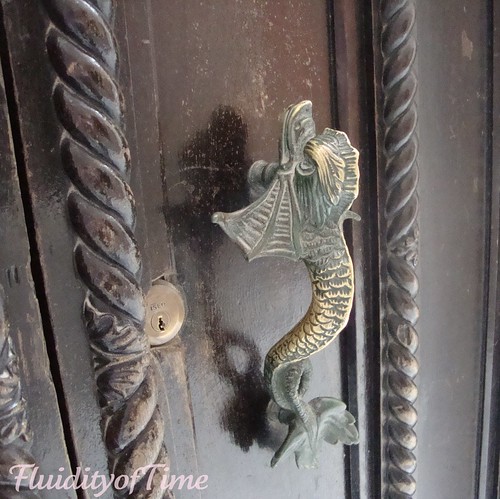Summary (courtesy of
GoodReads):
We know you are here, our brothers and sisters . . .
Pressia
barely remembers the Detonations or much about life during the Before.
In her sleeping cabinet behind the rubble of an old barbershop where she
lives with her grandfather, she thinks about what is lost-how the world
went from amusement parks, movie theaters, birthday parties, fathers
and mothers . . . to ash and dust, scars, permanent burns, and fused,
damaged bodies. And now, at an age when everyone is required to turn
themselves over to the militia to either be trained as a soldier or, if
they are too damaged and weak, to be used as live targets, Pressia can
no longer pretend to be small. Pressia is on the run.
Burn a Pure and Breathe the Ash . . .
There
are those who escaped the apocalypse unmarked. Pures. They are tucked
safely inside the Dome that protects their healthy, superior bodies. Yet
Partridge, whose father is one of the most influential men in the Dome,
feels isolated and lonely. Different. He thinks about loss-maybe just
because his family is broken; his father is emotionally distant; his
brother killed himself; and his mother never made it inside their
shelter. Or maybe it's his claustrophobia: his feeling that this Dome
has become a swaddling of intensely rigid order. So when a slipped
phrase suggests his mother might still be alive, Partridge risks his
life to leave the Dome to find her.
When Pressia meets Partridge, their worlds shatter all over again.
And here's what I thought: You know, I am pretty sure I will not be able to do justice to this book in this review. That might sound like a strange thing to say, but I have come to realize, after reading a few reviews on other blogs, it's clear that I'm probably not going to be able to do as good of a job. So, I'll keep this brief, and give you links to two of the reviews I saw recently that were really well written (
Lit Addicted Brit and
The Book Smugglers)
I think this is a book that readers will either really love, or really dislike. I really liked this book. In fact, I liked it so much that I stayed up way to late to finish it (guaranteeing I'd be drinking an extra soda the next day at work to keep my eyes open), and when I got to the end and discovered it was "Book #1", felt like throwing it because I couldn't believe I was going to have to wait to find out what happened next.
As you can see from the above summary, this book takes place after a cataclysmic event, and where some people have been able to escape into a Dome, which protects them from the harmful effects. Those effects on the rest of the population are pretty horrendous --- people are fused to different things, or each other, when the Detonations hit. I think this is one of the things that set this book apart for me, from different post-apocalyptic books I've read: that the survivors and the environment have been completely changed in such a way that in some instances, they have been combined. There is a horror element to this that really had me pausing at points just because I was trying to imagine what this would look like.
I liked that --- I like being completely horrified by something in a book because it's so fantastically awful and fascinating at the same time.
The characters in this book really ranged from likeable to unlikeable for me --- I liked Pressia, but didn't always like Partridge .... but that was okay, because I found them interesting. Perfect? No. But interesting? Yes. And there are some oddball characters thrown in there as well, where I wasn't sure why they were there or what they had to do with the story. However, I don't always need there to be a reason for someone; sometimes, it's enough just to encounter someone and leave it at that (after all, everyone we meet in our daily life doesn't have a huge, lasting impact).
I think what I probably liked the most about this book was the writing. The author does a good job with describing the people, the setting, etc. in a way that I could imagine those things clearly. I never felt like her writing was overwrought, or that the dialogue was weird (a pet peeve of mine is when people speak in such a way that it's completely unbelievable). I felt like the author created this awful, fascinating world and I just couldn't help but turn the pages (even if I had to pause occasionally to just take it all in). Some things were a little predictable, but then something else would be revealed and completely blow my mind -- and I liked being kept off balance like that.
So, I'm going to leave it at that. For me, this book had the right combination of pacing (at times, a bit slow, but I was okay with that), interesting characters, a storyline that kept my attention, and an overall idea that I found interesting (the whole elite small group of survivors versus the large group of scarred survivors who are rebelling). This won't be everyone's cup of tea, but I think it's a fine addition to the newest wave of dystopian books, and a story that I think would appeal to adults and older teens. Personally, I really enjoyed this book and now can't wait for the next installment.
First lines: There was a low droning overhead a week or so after the Detonations; time was hard to track. The skies were buckling with dark banks of blackened cloud, the air thick with ash and dust. If it was a plane or an airship of some sort, we never knew because the sky was so clotted. But I might have seen a metal underbelly, some dull shine of a hull dipping down for a moment, then gone. We couldn't yet see the Dome either. Now bright on the hill, it was only a dusky glow in the distance. It seems to hover over the earth, orb-like, a lit bobble, unattached.
Thoughts on the cover: Perfect. Eye-catching and completely relevant to the story, it's what I consider to be an excellent job of the cover art matching the book, and also selling the book (it draws the eye, making you pick it up .... and then the synopsis inside the cover does the rest).




























